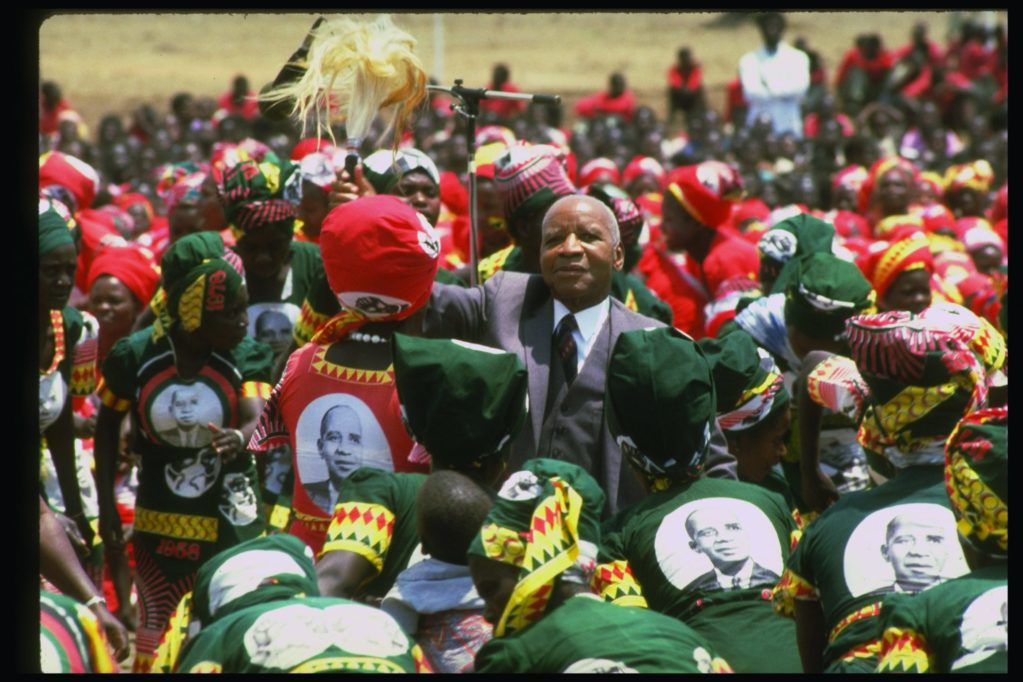It is just over 20 years since I journeyed to Blantyre to see a rare sight on this continent – a former head of state on trial before his own people.
The trial opened on a crisp winter’s morning, in the shadow of Mount Soche, at the High Court in Blantyre. At sundown you can watch clouds roll down the slopes of Mount Soche like a huge fluffy blanket – the people of Blantyre call it the ‘chip’ – one of the great sights of Africa.
The only thing in danger of going down on this winter’s morning, in 1995, was the remnants of a regime that had ruled Malawi for decades.
Hastings Kamuzu Banda was to stand trial for the Mwanza incident on May 18, 1983, even though he never made it to court as his lawyers deemed him too infirm.
Police caught four leading politicians, who were trying to flee Malawi, at Mwanza near the border with Tanzania. They pounded them to death with sledgehammers, put them back into their car and pushed it over a cliff to make it look like an accident. The vehicle caught on a tree and the only damage investigators found was a broken indicator light. The former president, his right hand man, John Tembo, and Cecilia Kadzamira, were charged with the killings.
Banda was one of Africa’s notorious big men – although, like most, he wasn’t very tall – who ruled with a lion’s tail fly-whisk in one hand with the other clenched in an iron fist. Under his homburg hat and three-piece English style suits, he saw himself as above his people and, like the British colonialists before him, believed his word was law. Women couldn’t wear short skirts; men with long hair and beards were shorn of their offending locks at the airport. The Jehovah’s Witnesses were killed, imprisoned and exiled, according to human rights reports.
Criticism was unwelcome, to say the least. Everyone, from journalists to poets, could be locked up without trial. In 1987, Goodluck Mhango, a veterinarian who had nothing to do with politics, was imprisoned merely because his journalist brother overseas had written an article criticizing the government. He was beaten up severely and spent more than four years behind bars.
One journalist I interviewed in Blantyre was held for more than 20 years in a cell that used to flood in the rainy season. He was diabetic and the paucity of prison food worsened this into glaucoma, sending him blind. Twenty years later, I interviewed him in freedom in his glorious garden in Blantyre that he could hear, smell, but not see. He recounted the story that got him in trouble about the former nurse from Zimbabwe, Kadzamira, who was Banda’s companion and on the state house payroll as an official hostess.
“All I did was question what an official hostess was,” says the former journalist with a smile.
I nodded my head in sympathy and wondered how difficult a letter from the editor, or a right of reply, was for the high and mighty to comprehend.
All of this madness in a country, now known as the warm heart of Africa, then known as the land where silence rules.
This silence was breaking when I first arrived in Malawi to report in January 1995, months after Banda lost elections to President Bakili Muluzi. On the way from the airport, I engaged the taxi driver in political talk – a practise a lot of journalists carry out when they hit the ground running. As we talked, he told me in Banda’s day it was difficult to start a taxi business.
“In those days, the police would be at your house asking where you got the foreign currency from to import the vehicle. In fact, if you wanted to talk politics I would have dropped you off at the side of the road!” says the driver as we hurtled into the city.
Banda, Kadzamira and Tembo were acquitted for lack of evidence. Banda died at home in bed in 1997. At least we were free to report the stories, even though, I am told, Malawi has veered back towards its cold and silent past.
